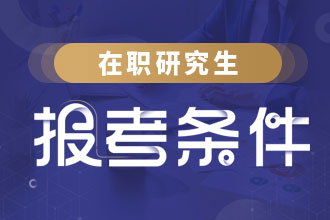同等學力英語每日一練2月27日
每日一練閱讀理解23
Every profession or trade, every art, and every science has its technical vocabulary. Different occupations, however, differ widely in the character of th eir special vocabularies. In trades and handicrafts, and other vocations, like farming and fishery, that have occupied great numbers of men from remote times, the technical vocabulary, is very old. It consists largely of native words, or of borrowed words that have worked themselves into the very fibre of our language. Hence, though
highly technical in many particulars, these vocabularies are more familiar in sound, and more generally understood, than most other technicalities. The special dialects of law, medicine, divinity, and philosophy have also, in their older strata, become pretty familiar to cultivated persons and have contributed much to the popular vocabulary. Yet every vocation still possesses a large body of technical terms that remain essentially foreign, even to educated speech. And the proportion has been much increased in the last fifty years, particularly in the various departments of natural and political science and in the mechanic arts. Here new terms are coined with the greatest freedom, and abandoned with indifference when they have served their turn. Most of the new coinages are confined to special discussions, and seldom get into general literature or conversation. Yet no profession is nowadays, as all professions once were, a close guild. The lawyer, the physician, the man
of science, the divine, associated freely with his fellow-creatures, and does not meet them in a merely professional way. Furthermore, what is called ""popular science"" makes everybody acquainted with modern views and recent discoveries. Any important experiment, though made in a remote or provincial laboratory, is at once reported in the newspapers, and everybody is soon talking about it - as in the case of the Roentgen rays and wireless telegraphy. Thus our common speech is always taking up new technical terms and making them commonplace.
11. Special words used in technical discussion ____.
A. never last long
B. are considered artificial language speech
C. should be confined to scientific fields
D. may become part of common speech
12. It is true that ____.
A. an educated person would be expected to know most technical terms
B. everyone is interested in scientific findings
C. the average man often uses in his own vocabulary what was once technical language not meant for him
D. various professions and occupations often interchange their dialects and jargons
13. In recent years, there has been a marked increase in the number of technical terms in the terminology of
A. farming
B. sports
C. government
D. fishery
14. The writer of the article was, no doubt ____.
A. a linguist
B. an essayist
C. a scientist
D. an attorney
15. The author''s main purpose in the passage is to ____.
A. describe a phenomenon
B. be entertaining
C. argue a belief
D. propose a solution
答案: D C C A A
特別聲明:①凡本網注明稿件來源為"原創"的,轉載必須注明"稿件來源:育路網",違者將依法追究責任;
②部分稿件來源于網絡,如有侵權,請聯系我們溝通解決。
- 上一篇:同等學力英語每日一練2月26日
- 下一篇:同等學力英語每日一練2月28日
一站式擇校服務!【免費領取】專業規劃&擇校方案

- 同等學力申碩需要考試嗎?
近些年來,攻讀在職研究生已經成為很多人提高自我的重要方法,我們都知道,非全日制研究生與全日制研究生一同考試,入學較難,因而同等學力申碩已經成為多數人的挑眩那么,...
0贊0評論2021-05-11 09:20:44





















評論0
“無需登錄,可直接評論...”